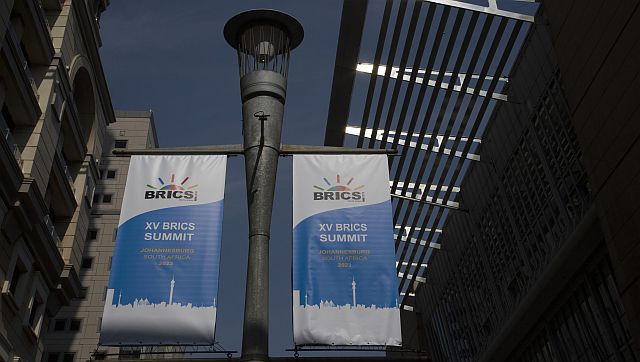The BRICS countries, an acronym for Brazil, Russia, India, China, and South Africa, will hold a three-day summit in Johannesburg beginning Tuesday. The 15th BRICS conference, which will take place from 22 to 24 August, is a crucial diplomatic engagement for this year as it is the first in-person BRICS meeting since 2019. The summit will be closely watched by the West because the agenda on the table does not suit its interests. Not a single member of this group has chosen to impose sanctions on Russia or to denounce it at the United Nations. Furthermore, the BRICS have been promoting the concept of
de-dollarisation , which would undermine the US dollar’s function as the global reserve currency. Representing 23 per cent of the world’s gross domestic product (GDP) and 42 per cent of the world’s population, they are seeking to dull Western economic domination in global affairs. To add to the West’s surprise, among the 23 countries that have applied to join BRICS are some that the US has worked to weaken over the years. Here are some facts and figures about the BRICS. A multipolar global order A group of emerging economies, it was formally launched in 2009 and it meets yearly at a summit hosted in rotation by one of the member countries. The meetings aim to assert their position particularly in relation to the United States and the European Union. [caption id=“attachment_13019242” align=“alignnone” width=“640”] Everyone is waiting to see if the alliance will grow to include 40 additional nations. Reuters[/caption] It promotes the recognition of a multipolar global order with economic and political balance, with the aim of breaking away from organisations formed in the post-World War II era, such as the World Bank and the International Monetary Fund (IMF). The expansion of BRICS Everyone is waiting to see if the alliance will grow to include 40 additional nations. The bloc whose economic growth is mainly driven by China and India, is now open to expansion. Twenty-three candidates have applied to join the BRICS, and an almost similar number have expressed an interest — among them Argentina, Ethiopia, Iran and Saudi Arabia.
**Also Read: BRICS Summit in South Africa: Who is invited? What to expect from the meet?** Many say that the group’s expansion will assist to counterbalance the Group of Seven’s impact on the global economy. This will not only help the BRICS maintain their relevance in the global system, but will also provide a new source of funding for the developing world. However, any BRICS membership extension will also be perceived as China’s desire to emerge as the developing world’s leader. One of the attractions of the group is the New Development Bank, created in 2015 with the aim of offering an alternative to the World Bank and the IMF.
The Shanghai-headquartered bank has since invested $30 billion (Rs 2.49 lakh crore) in infrastructure development projects in member states and other developing economies. Down with the dollar The five countries account for 18 per cent of international trade, the majority of which is transacted in dollars. Critical of the greenback’s predominance in world trade, one of their goals is to free themselves from the dollar. [caption id=“attachment_13019272” align=“alignnone” width=“2560”] The five countries account for 18 per cent of international trade, the majority of which is transacted in dollars. AP[/caption] The bloc supports the increased use of members’ national currencies for trade and the introduction of a common payment system in the long term. Brazil and China earlier this year signed a bilateral agreement to settle their trade in their local currencies. The Putin dilemma Preparations for the summit saw diplomatic tensions rise on the global stage after host President Cyril Ramaphosa invited Russia’s president Vladimir Putin who is the target of an International Criminal Court (ICC) arrest warrant over the war in Ukraine. Following months of speculation, Pretoria finally said Putin will attend the summit via video link. South Africa, whose ruling ANC party forged relations with Moscow during the Cold War, when the Soviet Union backed its fight against apartheid, has refused to condemn Russia’s invasion of Ukraine. University rankings A meeting of BRICS education ministers last month announced their intention to create their own international university rankings. Moscow believes that Russian universities are being excluded from existing international rankings for political reasons. With inputs from AFP


)

)
)
)
)
)
)
)
)



